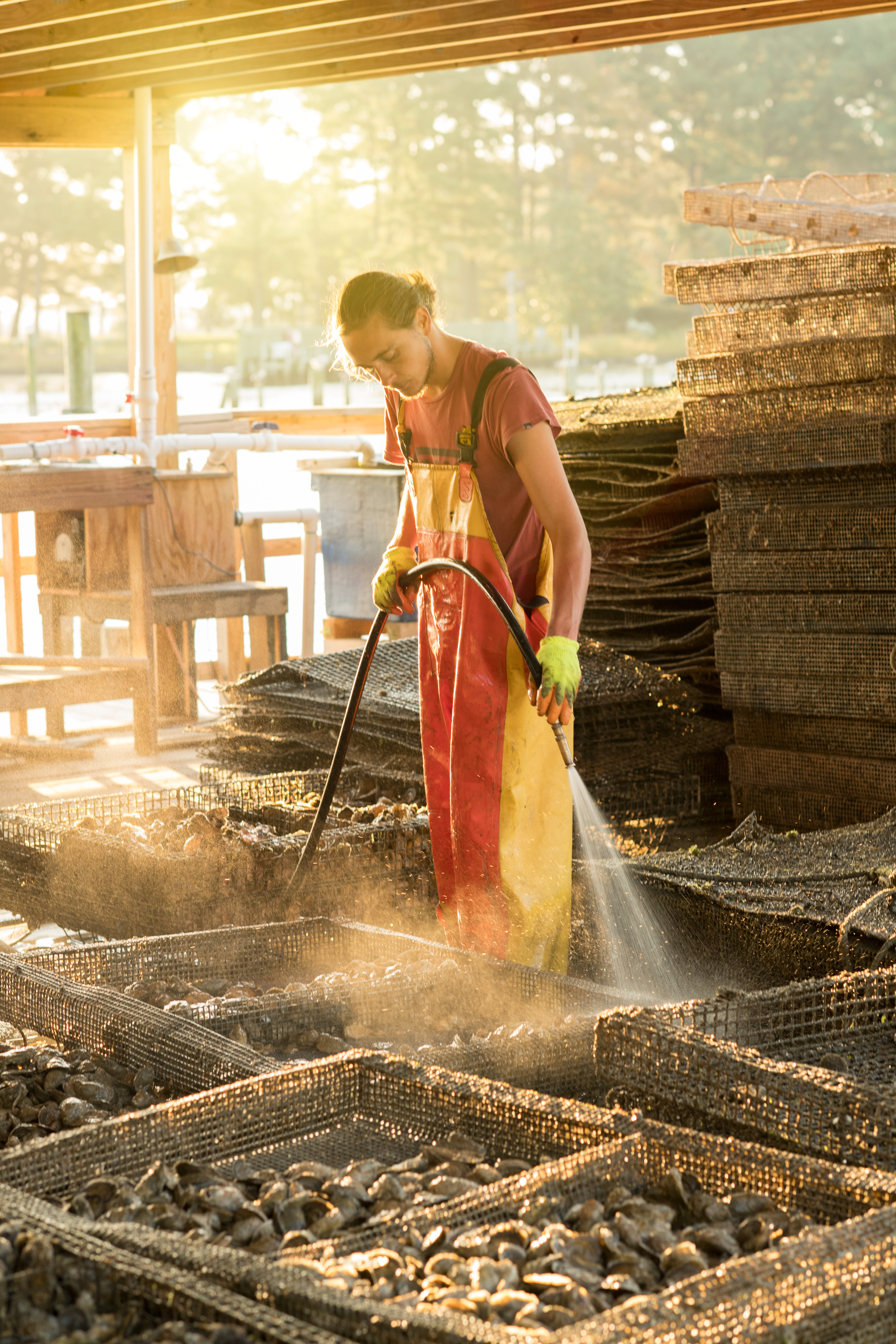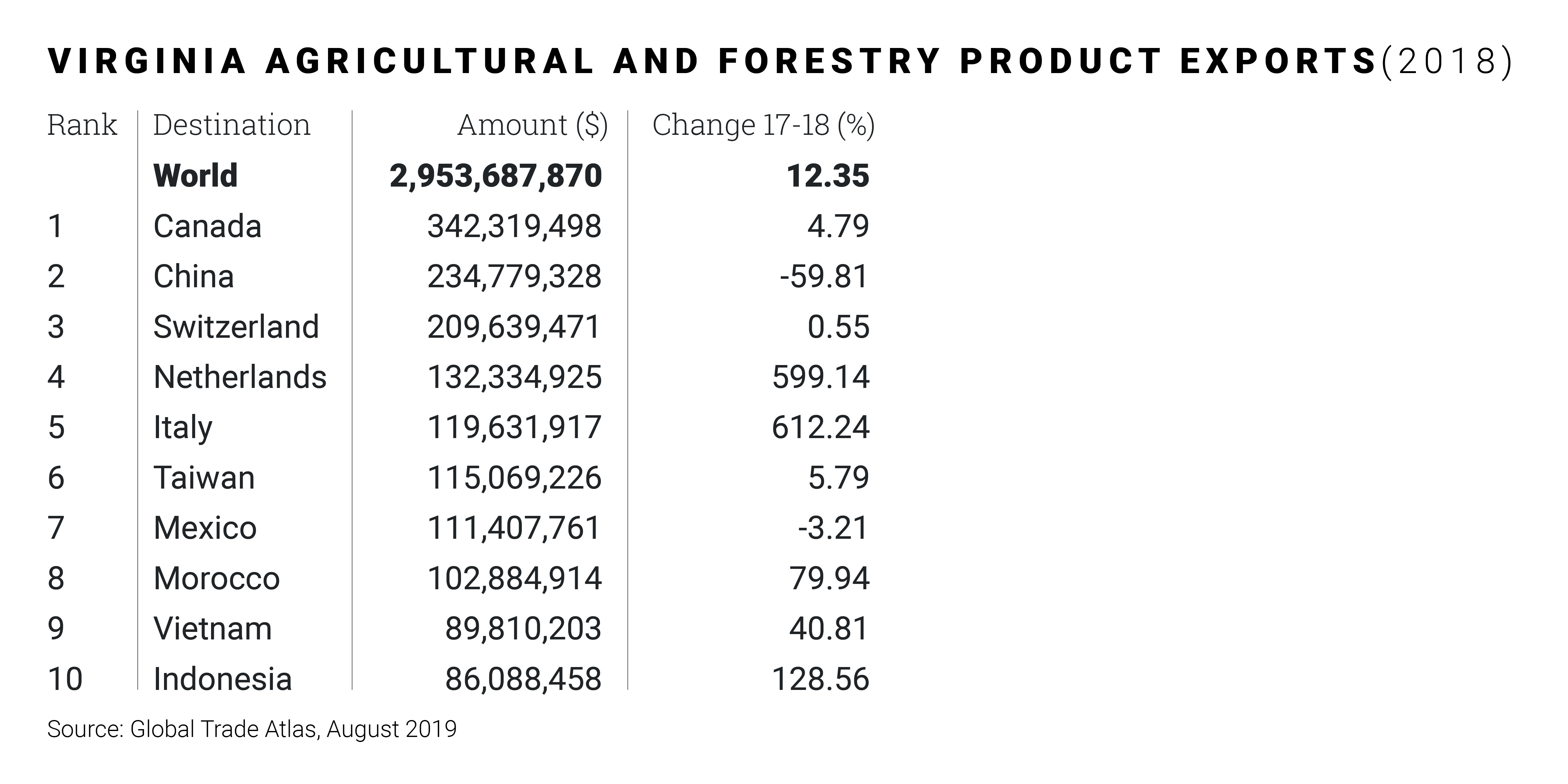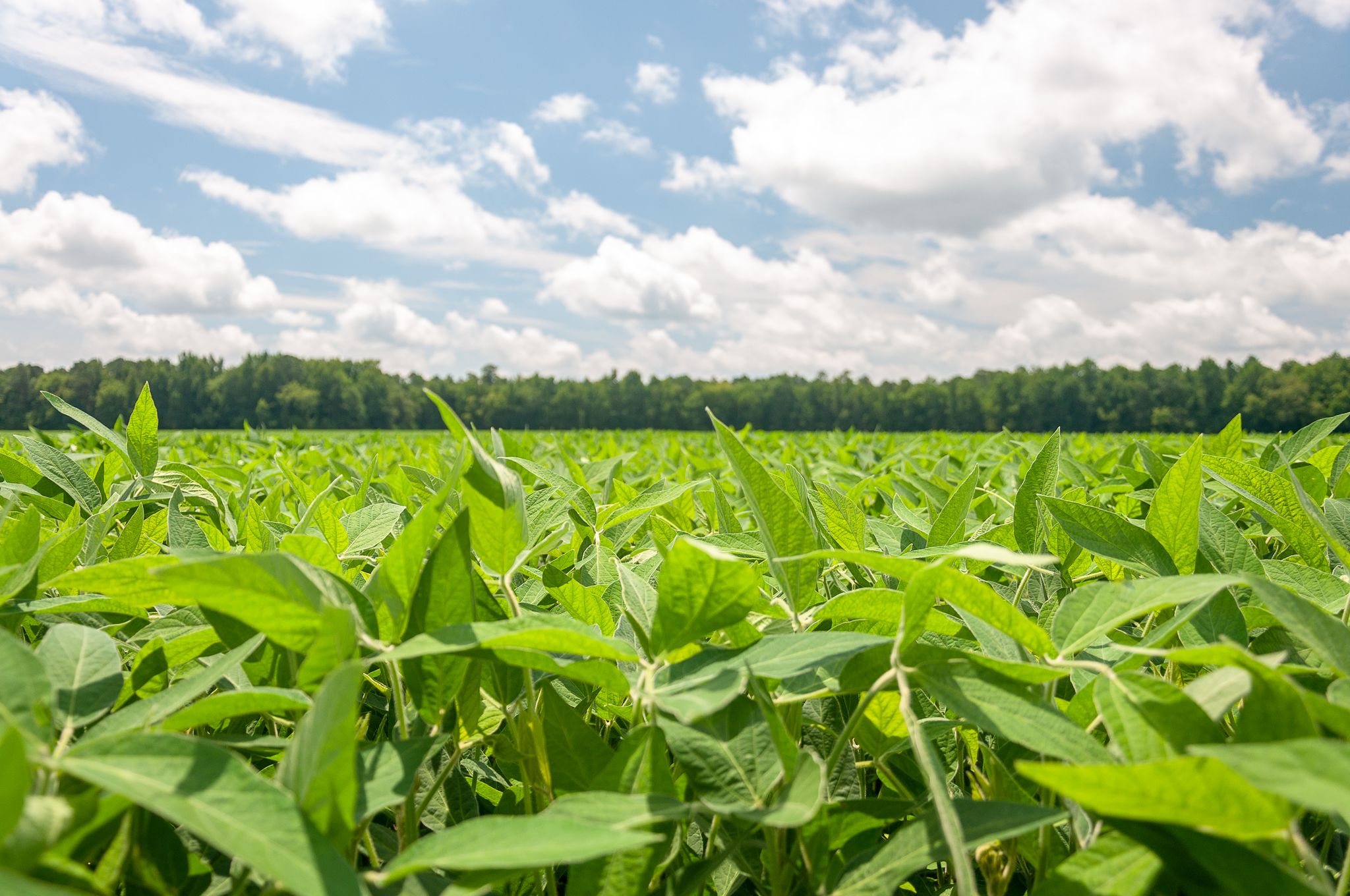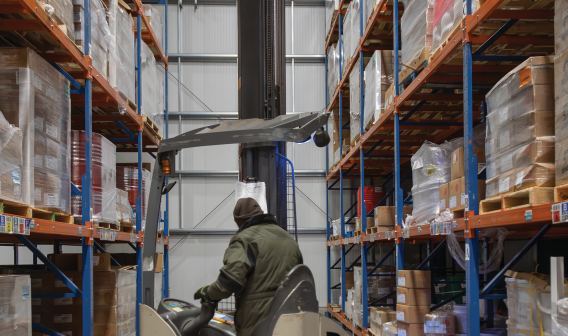After decades of working to revive the Chesapeake Bay oyster population, the Topping-based company has found that many overseas companies are interested in their bivalves due to a unique growing method that produces a cleaner oyster.
In 2004, the oyster harvester began shipping oysters from waterways near Topping to New York City restaurants. Today, the company looks a bit farther abroad. It exports oysters to China, Hong Kong, Colombia, the United Arab Emirates (UAE), and Canada.
“Growing our international sales is a critical part of our strategy to expand our business and develop not only the Rappahannock brand, but the Chesapeake Bay oyster brand as well,” commented owner Travis Croxton.
For Montague Farms in Center Cross, a town with a population of just over 1,200, exports are the business. The Essex County soybean grower incorporated in 1976 and sent its first shipment of non-GMO food-grade soybeans abroad in 1987. Tom Taliaferro, business manager for Montague Farms, recalls that it was the horrific economic conditions facing farmers in the late 1980s that pushed his father and uncles to explore value-added opportunities for their products. A VDACS trade representative in Tokyo called their attention to a Japanese breakfast food called natto.
“That market was looking for a small soybean with some special characteristics in terms of texture, color, and flavor,” Taliaferro explained. The farmers worked with Virginia Tech researchers to breed the desired bean and have since built their business on meeting demand in a range of Southeast Asian markets.
In the early years, the farm worked closely with state representatives who could identify markets and help with outbound and inbound trade missions. “They helped a small family business like ours reach other parts of the world where we really wouldn’t have any background knowledge,” Taliaferro said. Today the company exports 100% of its products.
Connecting Growers With Buyers
In general, Agee explains, VDACS supports rural exporters in multiple ways. The department works closely with representative offices around the world to scour overseas markets for strong fits with Virginia exports and supports growers in overseas activities. VDACS also brings Virginia brands to international trade shows and brings buyers to Virginia to show them firsthand how the supply chain works.
It was the latter technique that caught the attention of James Latham PLC, one of the U.K.’s oldest and largest wood importers and distributors. In 2015, the company was invited to tour Virginia hardwood operations run by Blue Ridge Lumber, Turman Lumber, Virginia-Carolina Forest Products, and W.R. Deacon & Sons Timber. “Without VDACS’ U.K.-based representatives reaching out to Lathams, I doubt we would have found these lumber companies on our own,” Latham’s director James White commented in a news release.
That mission, which cemented sales with all four rural lumber companies, helped Virginia’s agriculture and forestry exports to the U.K. reach a new high in 2015 of $133 million, of which about $110 million were wood products exports.
Through his attendance at Gulfood, Ivey discovered another important resource. An introduction to distributor McLean Global launched a partnership that simplifies the export process for Landcrafted Food.
“Until we have done it enough that we’re comfortable with sending our own loads across the ocean, it just made sense for us to partner with a company that already knows how to do it and has a sales staff that goes with it,” said Ivey.
In 2018, Landcrafted Food signed a two-year deal to give McLean Global time to help them grow their customer base in the UAE. That launch has gone better than projected, and today the team is planning its introduction into Malaysia.
Navigating Market Dynamics
Taliaferro emphasized the value of the state’s inbound trade and outbound trade missions. “You never know when the dynamics of the market are going to change.”
While media reports on the turbulence of international markets may seem unsettling to growers considering an export business, the truth is that markets may shift but don’t necessarily disappear. Take China as a case in point. With recent tariffs levied on China, the country has slipped from the leading market for Virginia’s soybeans. But the numbers indicate a twist to the story. As Agee explained, “Our soybean exports to China decreased by 80%, yet our overall soybean exports increased.”
Taliaferro elaborated, “The Chinese market has not gone away, and there are only a certain number of places that can supply the Chinese market. It’s essentially become a round robin of soybean supply.”
With Eastern Bloc and South American soybeans now headed toward China, Taliaferro has found himself fielding calls to supply deficits in those regions.
Agee gives credit to Virginia’s grain and soybean merchandisers. “The companies that merchandise these products are really good at figuring it out and finding the market. Last year most were able to pivot and find other markets to send the soybeans that previously were going to China.” With the support of experienced merchandisers, exporters can feel confident that their product will have a market.
The Value of Diversification
For Taliaferro, the recent market changes are one more reminder of the importance of consistently seeking new opportunity. “Moderation and risk mediation are good for everybody. Having different markets, different ways to make money on the farm in case there’s a downturn in one area, is really the key factor in longevity.”
Today, rural growers are more connected to the world than ever before. With the sprawling network of support that Virginia offers, the international market is ripe for the picking.







